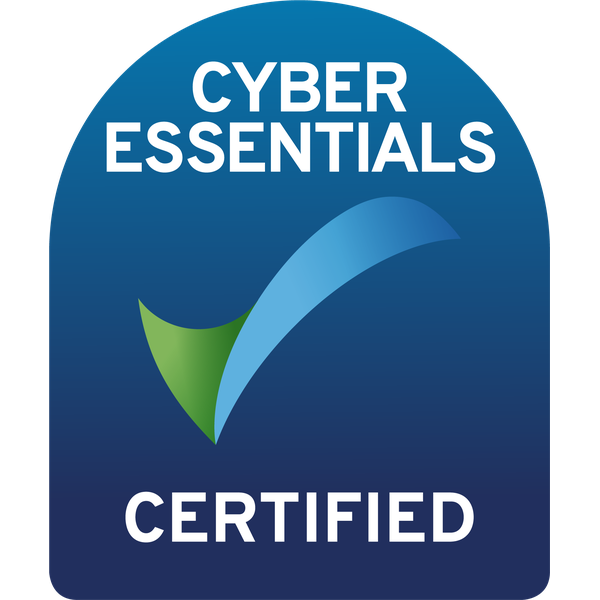Written by:

Grant Yuill
Head of Marketing & Customer Engagement
Imagine you or a person you care about was sentenced to 3 months solitary confinement.
Imagine you or a person you care about was sentenced to 3 months solitary confinement. It’s a horrendous thought, isn’t it? Whilst most of us in ‘lockdown’ are not in extreme isolation many innocent people are exactly that. How have the public responded to this self- imposed confinement? Magnificently, I would argue. But the question I want to ask is how is your firm responding to this challenge?

In his book, The Third Pillar, Raghuram Rajan former director of research at the International Monetary Fund argues that the economy is not just dependant on markets and governments but also on community. You can see his argument played out in real life as people are energised to help and support the people in their local communities to help them and reassure them, they are not in solitary confinement. It is bringing out the best of us. You and your firm are part of a community. What are you doing to support them?
There’s no doubt you are a great lawyer but, you see, for your clients, you being a lawyer isn’t just about your knowledge of the law — it’s about being a trusted source of support. You take the time to educate and explain to your clients, you follow up and provide quick responses, and — if you’re really good — you send birthday and Christmas cards. In short, you really connect with them. But how can you keep that going and even take your reputation and level of support to the next level in the current climate?
If you understand the problems your clients are now facing you can build trust and loyalty for your company in the community whilst also making a serious difference to their lives. Global, enforced prolonged isolation and separation are creating new problems for everyone. That’s a lot of people who are looking for a connection, or even better, a community.
Social Creatures
We are social creatures. You may not have thought about it until now but how much do you rely on outside stimulation to get you through your day?
What’s more is that the underlying reason for this isolation, although forced upon us, stems from the feeling of not having meaningful connections with people. That’s where you can come in. You can be the connection point that someone needs to feel appreciated, needed, and meaningful.
Beyond helping your clients in a very human, lasting way, you are also establishing yourself a trustworthy partner for the long term. The most basic of business concepts is that customers and clients want to feel valued and appreciated. If your client is truly disconnected, your supportive role is even more important.
Here are 5 simple ways to support disconnected and isolated clients in your community:
1. Get your team to remember the detail
The key to successfully supporting disconnected clients is to show real, honest interest in their lives. If you aren’t genuine with your intentions, you’ll risk alienating the person you are in contact with. The best way to have a genuine conversation is to gather and remember details about your client.
Do they have a family, children or grandchildren? What stage of life are they in? How did that wedding go? Did their friend end up getting that house? How are they getting on through this difficult time? How are they feeling after the last case you dealt with for them?
You might be thinking along the lines of “aye, right — I can’t remember what I had for breakfast that morning. How am I ever going to remember how old my client’s grandkids are?” That’s where a functional follow-up and client bio will come in handy. Did you know that bank (and other businesses) have details about you which they call ‘soft facts’? They know that these details are crucial in relationship building and retention. You can build your own ‘soft fact’ database in a variety of ways on a variety of different platforms.
Our suggestion is to use a Customer Relationship Management system (CRMs) to make sure absolutely nothing is missed. Systems, like CaseLoad, take away the mundane task of physical paperwork and instead make it easy to access important information such as the following:
- Client information
- Soft Facts
- Interactions you’ve had
- Any pending tasks or reminders
- Important documents
- Reports
If you’re just starting out and have a small amount of clients, or want to take some time to research and look into the different options, you can always begin by trialling Denovo’s CaseLoad CRM for your clients so that you can easily remember details about their lives.
Of course, there is a human trust element to updating the likes of a CRMs but once you start seeing the reaction of your clients when you ask how they enjoyed their holiday in Spain, it will make the operational change so worth it.
2. Connect regularly
Touching base with clients doesn’t mean you only connect up when payments are due. Establishing regular communication is not only a smart business tactic, but it can be vital for your isolated clients who, in a lot of cases, count on your interactions.
You don’t want your clients to think you only pick up the phone when you need information or want to ask a question about their bill.
Getting to really know your client will immediately create a relationship built on trust. As in, they trust you because you care about them as people. How much more powerful is it to give a call or send an email for no other reason than because you genuinely want to see how they’re doing?
That kind of conversation has a lasting impact and at Denovo we have found it to be priceless when it comes to securing loyalty from clients. It seems like such a small act, an almost insignificant act — how could it really do any good? However, you’ve taken someone’s average day and have added a burst of unexpected care, and that could be enough to drastically affect someone living in isolation.
Doing this on a regular basis is a great way to show you really do care and to set yourself apart from the competition.
Now, I get that you probably don’t think that it’s your duty to wake up and go through a list of clients to “check-up” on them. It’s not the duty of the anyone to check in on a neighbour and ask if they would like their groceries delivered or for the local postmen to dress up as Spiderman. But how does the community feel about them compared to the binman who just does his (essential) job and doesn’t interact with the community? Checking in every few weeks is a great balance of mitigating separation while not being overbearing or poorly managing your own time. It also can be useful to pick out the clients that you know could really do with this kind of interaction or may be struggling with something and specifically make a point to reach out to them on a regular, monthly basis.
The idea that a phone or video call can have a lasting impact is not new. For example, a friend of mine was using a prominent Edinburgh law firm’s conveyancing dept to move to a new house. She had an issue with the move-in date so needed an adjustment made. It was a short call — only about 10 minutes or so — and what this friend explained was how interested the person on the other end of the phone was about her, the client, and her general concerns. She decided to immediately contact me (knowing the sector I work in) and let me know how great the service was.
The next month, the unexpected check-in call came, got some life updates from her, and ended the call. The following month, she called again, caught up, and made sure everything was in order. Finally, the month she moved in, she got in touch once more, this time she found that there had been a family incident that meant additional services were required. My friend had seen an ad on her Facebook page for a cheaper firm than could provide her the service she needed. However, she decided to be loyal to the firm she felt a personal connection with.
The moral of the story here is that when you build a connection with your client, they are much more likely to be loyal to you even if your competition has a better offer. A relationship has value. After all, how many firms proactively take the time to develop personal relationships with their clients? It’s a win-win; you are doing the right thing, and your client will thank you for it.
3. Use video to connect
While we’re making the shift into the “new normal” some firms are crawling into their shells and hoping that they never have to figure out how the technology works. This is where communication can be difficult — many of us are used to communicating in person but going forward is that really the only way you can do it? To effectively communicate with your client, you need to speak their language, so to speak.
You probably already know that video calls are a great way to communicate with friends and family. In trying times, such as now, you will no doubt be on your phone or tablet more than you ever have been, checking in with the ones you miss most. Offering a service that suits your clients rather than the firm can set you apart from everyone else.
Take the extra initiative to do this for clients that you suspect might be feeling the effects of isolation and are concerned about their affairs. If this sounds like a good idea, we would recommend using Zoom, Skype and Microsoft Teams. Simple, easy to use and at this point, used by a large portion of the population.
4. Communicate your purpose
Now is the time to prove that your brand’s purpose means something. Your brand will be put to the test by the pandemic and the attending economic, societal, and political fallout.
You can help ensure this by making sure your communications during this time are intentional and convey the actual ways your business is putting actions behind its words. These can be offers of assistance, gestures of gratitude, straightforward comms about changes designed to make your workforce safer or more accessible. Here are some examples from Denovo’s community of partners:
- The Glasgow Law Practice are now offering 100% of their services online through their new GLP: On Demand platform. Essentially, GLP On Demand allows the firm to offer every one of their legal services online without a client requiring attending our offices.
- McKinstry Practice Management are supporting the Legal community by offering free, no obligation practical advice to any legal firm in the country. The focus will primarily be around efforts to navigate the next few months, alongside efforts to restructure, find a new direction and future strategy or other management issues. I think Graeme McKinstry’s experience and insight could be vital to firms in the current climate.
- Hey Legal, which launched in January of this year, allow lawyers to learn from any location about all sorts of CPD topics that would help their career, business and clients and to build a community where Scottish lawyers can congregate online, knowledge share and be the stronger for it. Their aim is to inspire new ideas and thinking in Scottish law firms. With Hey Legal offering free subscriptions while the country is in lockdown, there is no better time to become part of a new, dynamic presence in the Scottish legal sector. A place to learn and be part of a new community.
5. Build a Community

Harvard Business Review states that “Building Customer Communities Is the Key to Creating Value”. The best businesses are all about community. Internally the staff feel part of something (firm and profession) and externally the customers feel a connection to the business. Now is the time to strengthen all of these bonds.
This is a chance to show the business that you really are. People will be careful where they spend their money and won`t forget those getting it wrong e.g. Sports Direct, some football clubs, Wetherspoons.
Some of my fondest memories I have of growing up was visiting The Coylumbridge Hotel in Aviemore with my family. I’m sure I don’t need to explain why in great detail, but unfortunately, due to the staff being immediately sacked and, in some case, left homeless following the outbreak, I simply can’t bring myself to visit again. A real shame as my daughter will now never have the same experience.
It is also crucial that employees don’t become detached from what is going on in the firm – that includes working and furloughed staff. Communication is key, staying part of the profession via the community you build virtually is a great start.
Externally, you should be communicating with your existing clients and database. Not selling, just contacting offering help, seeing how people and businesses are. Out of that may come opportunity but irrespective of that reaching out will be noted and remembered by clients. Firms can also look to do good wherever they can, just like the firms mentioned above.
#inthistogether
Lawyers do great things all the time, help people achieve things like own property, set up businesses, protect their ideas, their innocence, protect their families. Curb Governments that seek excessive powers. Right now, you can help many people in need, their community and beyond and the days of normal trading will eventually return. The businesses that get things right now will come out of this renewed and able to shape their future.
To be sure, businesses are confronting extraordinary challenges and shepherding their teams through an unsettled landscape that changes daily, but they also have a rich opportunity to show what executive leadership and brand purpose really mean when they:
- Commit to communicating authentically
- Live their brand purpose
- Invest in people and relationships
- Build a community
We all know that communicating with our clients during uncertain times, in new ways was never going to be easy. While we will all confront different challenges unique to our sectors, one truth is constant: We are #inthistogether. You are part of our community, so whether you are a client or not we are here for you, let the Denovo team know how we can help.
To reach out to us for free, no obligation support or to let us know what initiatives your firm is creating to support the legal sector, email info@denovobi.com or call us on {{CONTACT_NUMBER}}.












